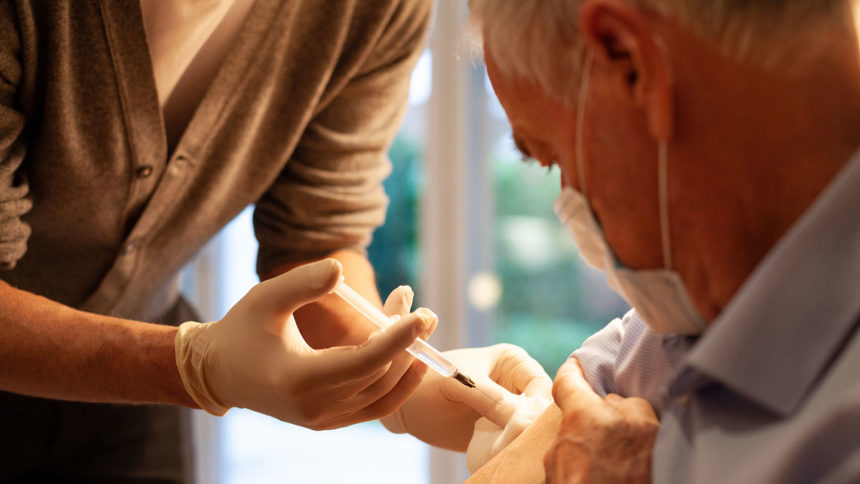
Most nursing home residents and workers develop signs of new omicron-specific immunity after receiving a third dose of Pfizer-BioNTech’s COVID-19 vaccine, investigators say.
The researchers enrolled 85 residents and 48 workers in the study. All were sampled after an initial two-dose vaccination series, and also just before and two weeks after they were given a third dose.
No matter whether they had been previously infected with the SARS-CoV-2 virus, booster vaccination bumped up levels of immunity in both groups, according to the study’s first author, David H. Canaday, M.D., of the Case Western Reserve University School of Medicine. This included a substantial boost in omicron-specific neutralizing activity, which was low after the initial vaccine series, he reported.
“Omicron-neutralizing activity following the booster lifted 86% of nursing home residents and 93% of healthcare workers to the detectable range,” Canaday reported. This is a jump from 28% after initial vaccination for each group, he and his colleagues reported.
The data “strongly supports booster vaccination to broaden neutralizing activity and counter waning immunity in the hope it will better protect this vulnerable, high-risk population against the omicron variant,” the authors concluded.
In related news, drugmaker Moderna announced Wednesday that it has started making its new variant-specific COVID-19 vaccine ahead of regulatory approval with the hopes of making it available by August.
The current study was published in the Lancet.
Related articles:
Nursing home COVID-19 infections quadruple as booster rate slows




